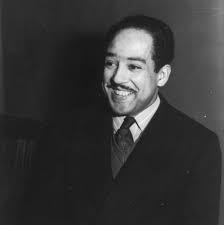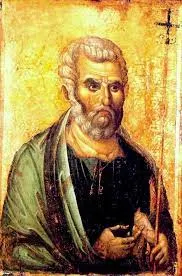Today marks Holocaust Memorial Day, on
the 77th anniversary of the liberation
of the Nazi concentration camp Auschwitz Birkenau,the largest Nazi
death camp in occupied Poland. where 1.6 million
men, women children were killed in the holocaust. Holocaust Memorial Day
also commemorates as well as victims of later genocides
in Cambodia, Rwanda, Bosnia and Herzegovina and Darfur.
The day aims to remind people of the crimes and loss of life and
encourage remembrance in a world scarred by genocide and prevent it
ever being forgotten.
“For the dead and the living, we must bear witness.”
These are the words of Elie Wiesel, a Romanian-born American writer,
professor, political activist, Nobel laureate, and Holocaust survivor.
He, along with 1.3 million other Jews,
was held prisoner in the Auschwitz concentration camp during World War
II, and he was also one of only 200,000 (approx) Jews who survived it.
Elie
went on to write a number of books about his own personal story and
that of the Holocaust (also known as 'the Shoah’ in Hebrew) in general,
and his works — along with the likes of Primo Levi (author of
If This Is A Man)
and Anne Frank, whose diary is famous across the world — are some of
the most defining stories of that era. They are books I would implore
everyone to read, especially as a 2021
study
found that over half of Britons did not know that six million Jewish
people were murdered during the Holocaust, and less than a quarter
thought that two million or fewer were killed.
And though it is easy to leave history in the past, events like The Holocaust
must be remembered — they must be remembered out of respect for those
who lost their lives, for those who overcame the most severe form of
persecution and went on to become productive members of the communities
in which they settled and for those who are yet to even step foot on
this planet. We must, as Elie Wiesel says, “bear witness” to these
events, and pass their stories and their lessons onto the next
generation, so that we can avoid such horrors happening again.
There is no doubt in my mind that the Holocaust was the greatest crime
of the 20th century because of the sheer scale of the premeditated and
industrialized murder of six million Jews alongside the six million Jewish victims of Nazi persecution, hundreds
of thousands of others were targeted by Hitler's regime - including
trade unionists, lesbian, gay, bisexual and transpeople, (LGBT) gypsies,
disabled people and the mentally ill, and others attacked for their
race or simply being different.
At Belsen, Chelmno, Revensbrul to name a
few more among hundreds where the inhumanity of man to man was
endorsed by the Nazi regime.It is the worst dehumanization that happened until today. It was
industrial and they went all the way. They dehumanized them completely,
to a pile of hair and gold. Survivors recount horrific examples of ethnic
cleansing, torture, cruelty and savagery, often corroborated by the Nazi
hierarchy’s meticulous recording of the whole truly awful scenario.International Holocaust Remembrance Day is a stark reminder of where
hate and antisemitism can lead if not countered. Worryingly, this year’s
commemoration efforts will take place against a backdrop
of rising antisemitism and Holocaust distortion all over the world.
The theme for Holocaust Memorial Day (HMD) 2022 ,set by the Holocaust
Memorial Day Trust (HMDT) is ‘One day’: looking at how a single day can
change your life as a victim or survivor of genocide and persecution,
and how we can keep telling the stories of genocide victims and
survivors.
Holocaust and genocide survivors also often talk about the one day in
their life when everything changed, sometimes for the worse and
occasionally for the better.
Additionally, the HMDT says that “it may be
hard to pick out just One Day, as for many, to keep going through each
and every day was a huge struggle, with no end in sight and no glimmer
of hope that the next day would be any better”.
It may be one day in our calendar but we commit every day to create a better future so that one day, all people are free from oppression and persecution.
Increasing levels of denial, division and misinformation in today’s
world mean we must remain vigilant against hatred and identity-based
hostility.
Rapid technological developments, a turbulent political
climate, and world events beyond our control can leave us feeling
helpless and insignificant.
The utterly unprecedented times through
which we are living currently are showing the very best of which
humanity is capable but also - in some of the abuse and conspiracy
theories being spread on social media - the much darker side of our
world as well.
The national Holocaust Memorial Day Trust’s annual UK commemorative
event will be streamed online again this year, due to the pandemic.
It will run from 7pm to 8pm and at 8pm households across the UK
are encouraged to safely light candles and place them in their windows
in remembrance of those who were murdered for who they were, and to
stand against prejudice and hatred.Those
who are able to do so are encouraged to share a photo of their candle
on social media, using the hashtags #HolocaustMemorialDay and
#LightTheDarkness.
We can all stand in solidarity. We can choose to be the light in the darkness.
Holocaust Memorial Day enables us to remember – for a purpose. It
gives us a responsibility to work for a safer, better, future for
everyone. Everyone can step up and use their talents to tackle
prejudice, discrimination and intolerance wherever we encounter them.
We must remember that genocidal regimes throughout history have
deliberately fractured societies by marginalising certain groups, and
how these tactics can be challenged by individuals standing together
with their neighbours, and speaking out against oppression and all forms
of racism and discrimination. The Holocaust is not just a Jewish
tragedy, but it is a lesson to all of
us of all faiths in all times and a continuing reminder to stand with
“others” when their rights and freedoms face attack.
In the years leading up to the Holocaust, Nazi policies and
propaganda deliberately encouraged divisions within German society –
urging ‘Aryan’ Germans to keep themselves separate from their Jewish
neighbours. The Holocaust, Nazi Persecution of other groups and each
subsequent genocide, was enabled by ordinary citizens not standing with
their targeted neighbours.
Let 's not forget that the Holocaust did not appear out of thin air, it
was built on hatred for "the other," politically weaponized by those
seeking ever more power. As politicians today say never again, some are
walking down that same path. Today there are still those that are
stoking up increasing division in communities across the UK and
the world, antisemitism, racism and Islamophobia are on the.rise again.
We must oppose attempts to divide us along the lines of race, religion
or ethnicity.
Far right and fascist forces are growing. Many of them deny the horrors
of the Holocaust. and are whipping up racist scapegoating.Neonazi electoral advances in Europe are linked to anti-immigrant,
Islamophobic and anti-semitic violence.
In recent years, Muslims and Roma have faced fascist hate, as new
communities are victimised by the far right. As openly nazis appallingly
revel in the crimes of the Holocaust, now more than ever, we need to stand
together with others in
our communities in order to stop division and the spread of
identity-based hostility in our society.
Somehow human beings around the world are capable of so much hate, we
should work together to prevent this. Remember those who have resisted,
shown bravery and courage. Remember all the victims of the Holocaust. Those who were murdered because of who they were, and reflect on the dark evils of Nazism, anti-Semitism and racism. While you do. please think about those people who are also facing genocide today; The
Uighur Muslims in China, The Rohingya in Myanmar and also the
Palestinian people too.
We should never forget where hatred and bigotry can lead. There
can never be anytime for passivity, and we must stand strong against
the dark forces of intolerance, bigotry, racism and division that
create them.When we remember the Holocaust, “never again” must mean exactly that.
On Holocaust Memorial Day, Here is a list of some other places and people that the world sometimes forgets.
Cambodia,
Darfur,
Siebrenica,
Karabakh,
Liberia,
Sudan,
Holodonor,
Armenia,
the ethnic cleansing of indigeneous Palestinians,
The Indigeneous Peoples of America,
Checknya,
Congo,
India
and the genocide of slavery
and on and on and on.
Sadly there will always be individuals, organisations and regimes who
want to
exploit differences for their own ends and we must have the courage to
speak out against hatred and intolerance where we see this happening.
In a world which is increasingly fractured, where we have some leaders
that are more interested in promoting division than harmony, it is vital
we remember that there is far more that unites than divides the human
race, to prevent a repeat of the horrors of the past, lets strive to
work for equality , peace and justice for the whole of mankind. Be the light in the darkness.
Through our collective acts of remembrance, we honour the survivors of
the Holocaust and subsequent genocides and challenge ourselves to use
the lessons of their experiences to ensure that, one day in the future,
such atrocities never happen again.
First They Came - Pastor Martin Niemoller
First they came for the Communists
And I did not speak out
Because I was not a communist
Then they came for the Socialists
And I did not speak out
Because I was not a Socialist
Then they came for the Trade Unionists
And I did not speak out
Because I was not a trade Unionist
Then they came for the Jews
And I did not speak out
Because I was not a Jew
Then they came for me
And there was no one left To speak out for me.
Read more about Holocaust Memorial Day









